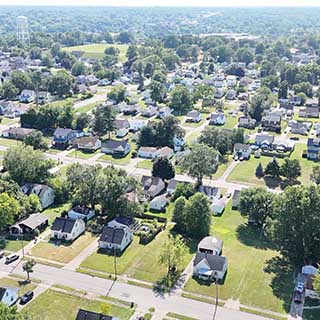ORCHID: To Trumbull County Central District Court Judge Thomas Campbell for contributing $100,000 to the county’s Mental Health and Recovery Board so that drug and alcohol treatment services for inmates at the county jail can continue. Those dollars represent surplus funding from his court’s Indigent Driver program that state law permits judges to transfer to addiction treatment programs for convicted criminals. TCMHRB Executive Director April Caraway was understandably pleased with the thoughtful donation as plans to scale back vital and often life-changing services to inmates — 80% of whom have problems with addiction or mental health — can now be canceled.
ORCHID: To Cortland City Council President Kevin Piros for his pledge to work with the mayor and service department for solutions to an utterly stinky problem in that community. At last week’s council meeting, residents complained about large numbers of skunks in neighborhoods. Resident Rita Dodd told council, “The smell is so bad you can’t use your air conditioner and have to keep windows closed. My dog and other people’s dogs have been sprayed.” We hope Piros and other city leaders will work seriously and quickly, perhaps in part by cracking down on those who feed the odiferous critters, to clear the air in town for good.
ONION: To former Vienna Township Fiscal Officer Linda McCullough for the mayhem and financial chaos she singlehandedly inflicted on the community through her devious criminal acts. At long last, McCullough last week finally fessed up and pleaded guilty to 10 criminal counts against her, which included two counts of theft in office, one count of telecommunications fraud and seven counts of tampering with records. The value of the property or service stolen was $116,370, according to her February indictment. But here’s the rub: The grand jury chose to indict her on only 10 of 35 possible suspicious illicit fund transfers, according to Trumbull County Assistant Prosecutor Charles Morrow. When sentencing occurs next month, we urge Trumbull County Common Pleas Court Judge Cynthia Westcott Rice to spare no mercy.
ORCHID: To the Trumbull County-based Beta Chi Chapter of the Delta Kappa Gamma Society for reaching its milestone 70th anniversary this year with a celebration at St. Paul Lutheran Church in Warren. The international organization promotes professional and personal growth of women teachers and excellence in education. We congratulate the society and wish it well as it continues its noble mission of developing model classroom teachers in our region.
ORCHID: To Rick Stockburger, CEO of BRITE Energy Innovators incubator in downtown Warren, for eight years of energetic, solid and successful leadership. Stockburger is leaving the incubator to assume an as-of-yet unidentified “prominent national role in the energy sector,” BRITE reported. Under Stockburger’s astute leadership, BRITE helped its portfolio companies raise more than $200 million in capital in 2024, has supported more than 650 energy-tech startups, catalyzed more than 2,100 jobs and raised more than half a billion dollars in third-party investment. Clearly his giant leadership shoes will be hard to fill.
ONION: To those careless cable and telecommunications companies that are wreaking havoc on properties in the Mahoning Valley in their expansive quest to install state-of-the-art fiber optic lines. Boardman Township trustees recently got an earful from angry residents about the damage and destruction such work has caused on private properties. Attorney John Shultz was one of the loudest: ”They have destroyed driveways … they have knocked out street lights” and parked heavy equipment in yards without permission. Because of limited government rules of townships, trustees unfortunately are relatively powerless to deal with the mess. We join trustees in urging affected property owners to report such destruction to the Federal Communications Commission.
ORCHID: To the Mahoning Valley Tree Corps and its partners for their successful efforts to beautify Youngstown and Warren. The corps, whose partners include the Trumbull Neighborhood Partnership, CityScape and the Youngstown Neighborhood Development Corp., is working to enhance the tree canopy in the Valley’s two largest metro centers.
To read the full story from The Tribune Chronicle, click here.


